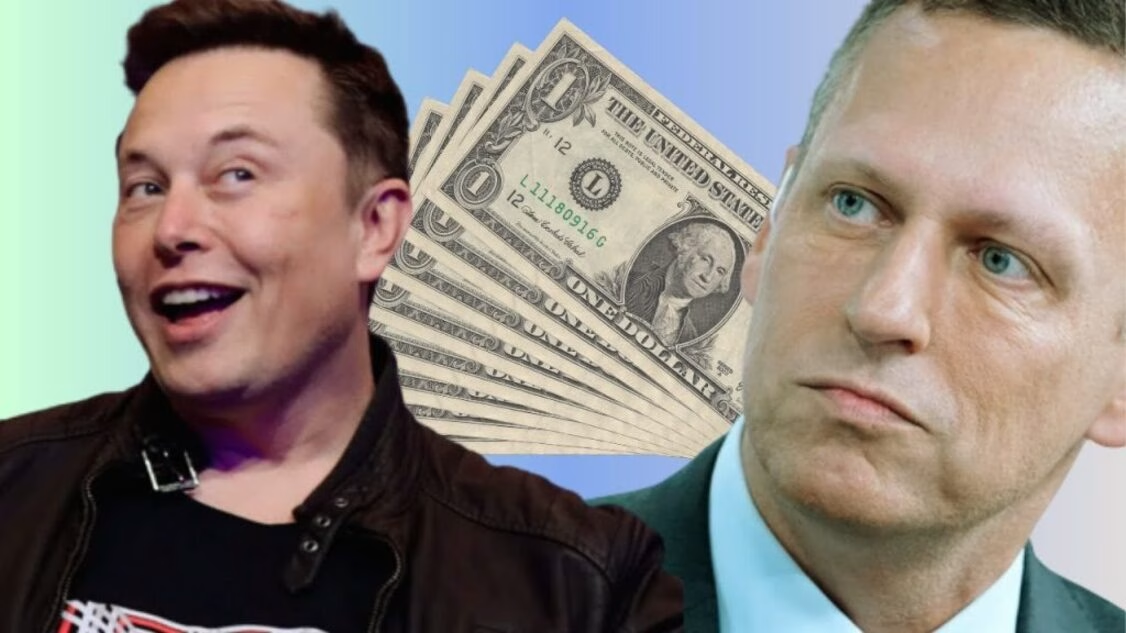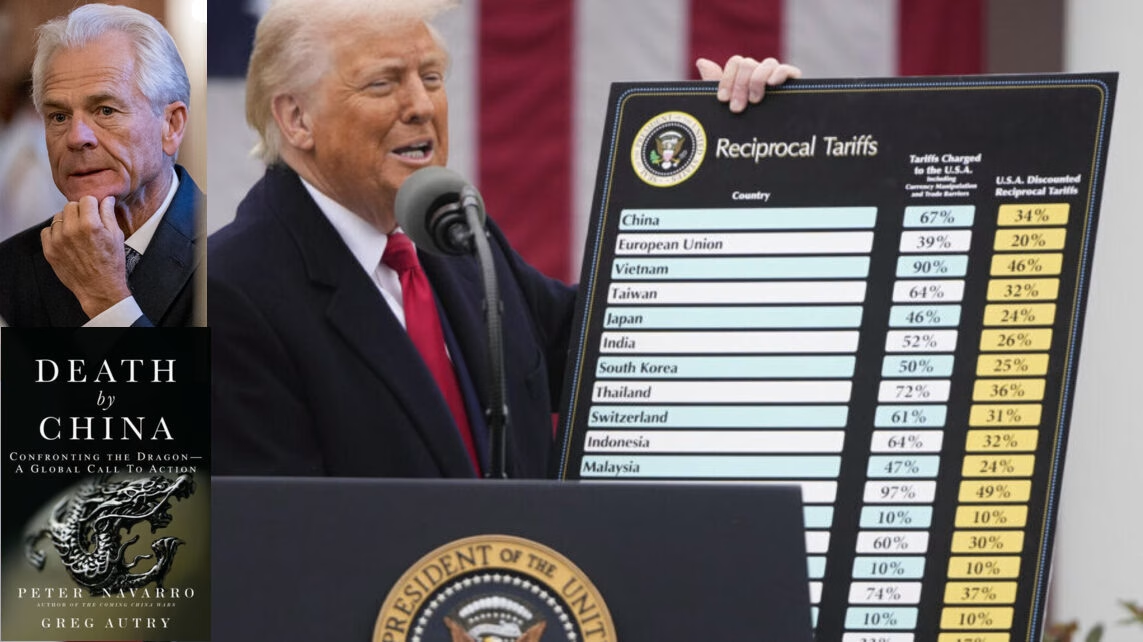By Mary Jones & Ben Emos | Friday, April 11, 2025 | 5 min read
A decade ago, Elon Musk told the world we’d be on Mars by now. Ten years later, we’re still stuck on Earth, but Musk has landed somewhere else entirely—deep inside the machinery of politics, media, and global power.
Trump made plenty of big promises too. Who could forget his vow to “build the wall” or his claim that egg prices would drop “on day one”? The wall never really materialized, and instead of prices falling, eggs got more expensive. Now, he points the finger at Biden, as if none of it happened on his watch. It’s the same tired playbook: make bold promises, fall short, dodge accountability—and always find someone else to blame.
These two aren’t just flukes. They’re the frontmen of a broader movement—one led by tech billionaires like Peter Thiel—who’ve quietly gone from startup visionaries to political kingmakers.
The PayPal Mafia and the Birth of Tech Oligarchy
Silicon Valley likes to brand itself as forward-thinking, even progressive. But from the start, it was tangled up with defense contracts and federal cash. In the early 2000s, a new breed of tech mogul emerged—libertarian, ruthless, and allergic to regulation. Musk and Thiel led the charge.
Thiel was the first big-name tech billionaire to bet on Trump in 2016—not out of loyalty, but because he saw Trump as a battering ram against the institutions he despised. Musk took a different route—slow to politicize at first, he leaned into the Trump orbit once it suited him. It’s a strange dance: Musk makes his money off clean energy and government subsidies, while Trump clings to oil and grievance politics. But ambition is a powerful glue.
The Biden Snub That Changed Everything
The turning point? A White House EV summit in 2021. Biden left Tesla off the guest list and spotlighted legacy automakers instead. To Musk, that wasn’t just a policy choice—it was personal. And it flipped a switch.
He’d once embraced Obama-era policies and praised federal loans that kept Tesla afloat. But after that snub, Musk swerved hard to the right—amplifying conspiracy theories, courting culture warriors, and styling himself as a “free speech absolutist” while banning critics on his own platform, X (formerly Twitter).
The Scam Artist’s Playbook: Fake It Till You Make It
Trump and Musk may look different on paper, but their strategies are eerily aligned: inflate the hype, dodge the consequences, and keep the crowd chasing a fantasy.
Musk still insists full self-driving Teslas are just around the corner—despite repeated failures and safety concerns. Trump promised economic miracles and national greatness, but delivered chaos and inflation.
And both men have mastered a kind of narrative Teflon. Trump once claimed The Apprentice had “the highest ratings in history” even as viewership cratered. Musk does the same: no matter how shaky the product, he sells it like it’s magic.
Apartheid’s Long Echo in the Age of Tech
Here’s something rarely talked about: both Musk and Thiel have personal ties to apartheid-era South Africa.
Musk grew up during apartheid. He says he left because he opposed the regime, though he’s also defended white South African farmers with far-right talking points. Thiel’s family worked in Namibia—then still under South African rule—in uranium mining, a business that fed the apartheid state’s military ambitions.
That legacy matters. Both men seem more comfortable with concentrated power than democratic norms. They don’t just question regulation—they see it as the enemy. In that sense, they’ve imported lessons from an authoritarian past into the heart of American politics.
The Future: Oligarchy or Accountability?
Musk and Thiel aren’t just donors or influencers. They’re trying to rewire the system itself—bankrolling candidates, owning platforms, and bending public debate to their will.
But their dominance isn’t guaranteed. America still has levers of accountability: courts, regulators, journalists, and a public that—when awake—can push back. The question is whether those checks will hold fast, or whether these billionaires will continue slipping past them.
What’s clear is this: the age of the apolitical tech founder is over. These guys are deep in the trenches now, shaping the rules to serve themselves.
As one commentator put it, “They’re not just playing the game—they’re buying the stadium, hiring the refs, and rewriting the rulebook.”
The real question now is: who will be the one to blow the whistle? It’s a growing chorus, one that includes not just Democrats, but leaders from around the world who are starting to take notice and speak out. The impact is starting to show—slowly but surely. Public opinion is shifting, with polls indicating that Elon Musk is becoming one of the most despised figures in the world today. His ever-deepening ties with Donald Trump only seem to be fanning the flames of discontent, amplifying the negativity surrounding him.
What’s even more unsettling is that China, once a key partner in Musk’s ambitions, may now be taking a much more cautious—and perhaps even suspicious—view of him. Musk’s aggressive moves in politics, his unpredictable behavior, and his growing alliance with Trump could be complicating his relationships on the global stage, especially with a nation that holds such economic and geopolitical sway.
It’s no longer just about tech innovations or flashy promises; the fallout from Musk’s actions is starting to feel personal, political, and deeply entwined with the shifting dynamics of global power. The question remains: will anyone step forward to truly expose the full extent of his influence—and how much further will it go before the world pushes back?
Copyright 2025 FN, NewsRoom.





